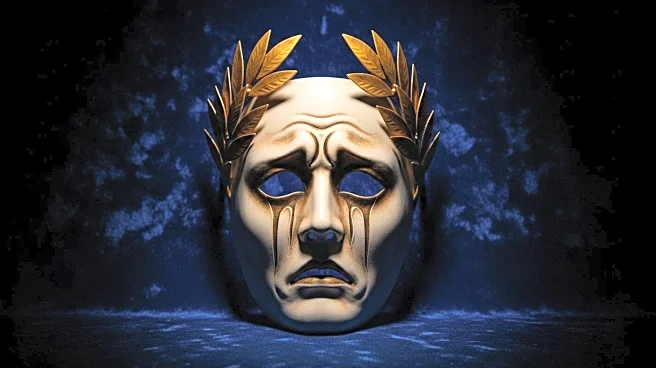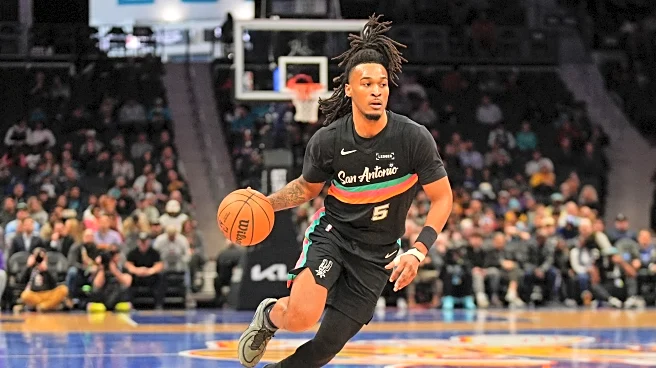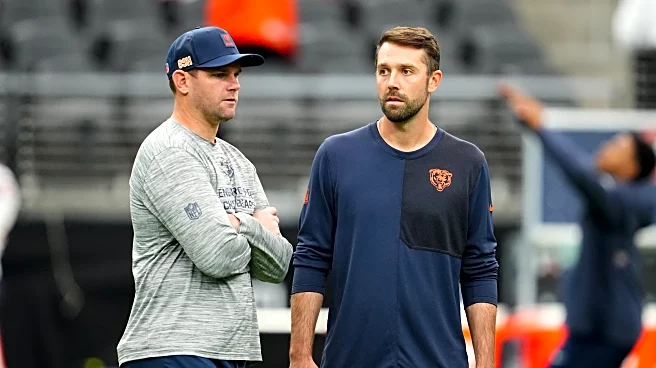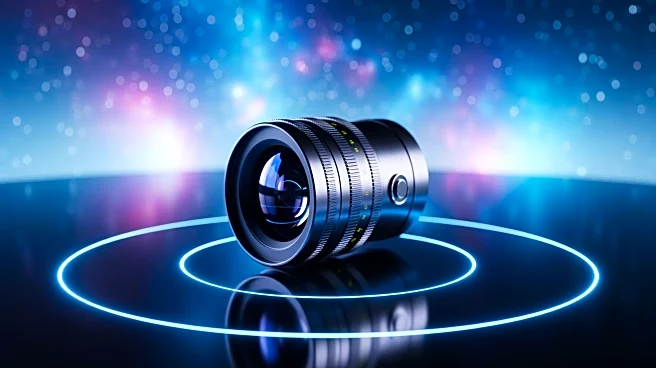What's Happening?
The Lyric Opera of Chicago is currently showcasing Luigi Cherubini's opera 'Medea,' featuring a standout performance by Sondra Radvanovsky. Directed by David McVicar, the production presents a modern interpretation of the classic tale of betrayal and revenge. Radvanovsky's portrayal of Medea is described as a forceful embodiment of chaos and passion, capturing the character's emotional turmoil and tragic inevitability. The opera, which runs through October 26, is noted for its innovative set design and powerful vocal performances, particularly Radvanovsky's ability to convey Medea's complex emotions in real-time.
Why It's Important?
This production of 'Medea' is significant for its fresh take on a timeless story, highlighting the enduring relevance of themes such as betrayal and the consequences of unchecked passion. Radvanovsky's performance is particularly noteworthy, as it brings a new depth to the character of Medea, offering audiences a visceral experience of her emotional journey. The opera's success underscores the Lyric Opera's role in pushing the boundaries of traditional opera, attracting new audiences and maintaining its status as a leading cultural institution in the U.S.
What's Next?
The Lyric Opera's 'Medea' will continue to run until October 26, providing more opportunities for audiences to experience this compelling production. As the opera season progresses, the Lyric Opera may continue to explore innovative interpretations of classic works, potentially influencing other opera companies to adopt similar approaches. The success of 'Medea' could also encourage further collaborations with renowned directors like David McVicar, enhancing the opera's appeal and accessibility.
Beyond the Headlines
The production of 'Medea' at the Lyric Opera not only showcases artistic excellence but also raises questions about the portrayal of complex female characters in opera. Radvanovsky's performance challenges traditional narratives, offering a nuanced depiction of Medea that resonates with contemporary audiences. This could spark discussions about gender roles and representation in the arts, encouraging more diverse and inclusive storytelling in opera and beyond.










